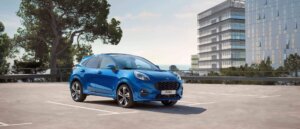Electric cars offer a quiet and smooth driving experience because of their electric motors. Improved battery technology has extended the driving range of electric cars, reducing the need for frequent charging. As a result, electric cars have become a practical option for daily commuting. Electric cars produce zero tailpipe emissions, which makes them more environmentally friendly, helping to reduce air pollution and greenhouse gas emissions.
Electric cars in the UK have a growing network of charging points to support the increasing demand. These charging stations are strategically placed across the country, making it easier for electric car owners to find a convenient charging spot. There are many other charging options available, including home charging and public charging stations, making owning an electric car in the UK more accessible, convenient and hassle-free.

 app
app
